In Mali, only 1 in three girls will be able to finish middle school. Many pressures drive girls away from school – from child marriage to economic needs to out-dated beliefs about a woman’s rôle. Our Girls’ Project works to address the range of pressures on girls but my small part is to work with boys throughout the school year to help them understand how they can help change things – how they can speak up for their sisters and female classmates.
Making Sure Girls Have Options
Young people in Mali face many challenges, particularly if they are female. Education helps girls (and boys!) by providing them options for their future, but sometimes the traditional route to unemployment is barred. That’s why the Girls’ Project encourages young women to think creatively about their career options.
A Mother-Daughter Debate
Educating a child involves more than the dedication of that child – it takes everyone’s help. This is way the Girls’ Project works hard to engage the parents – and especially the mothers of our girls – in the drive to educate girls. This year, I’ve had several meetings with female leaders in our partner villages to solicit their help in organizing mothers’ support for girls’ education in the villages. This month, we brought the mothers and their daughters together to discuss girls’ education.
Reading Opens Doors for Girls
Mali Rising’s Girls’ Project is focused on helping girls get into school and succeed there. One key to success in school? Reading abilities! That’s where our Great Girls Read sessions come into play. Great Girls Read reading sessions are designed to help the girls improve their reading skills and find real pleasure in reading.
The Bravery of Kadiata
Boys Speak Out for Girls
Girls’ education is a challenging subject everywhere in Mali. But it is especially problematic in rural areas, like those where our schools are located. Many parents in Mali do not think that a girl’s education is as valuable as a boy’s. Parents’ attitudes towards girls’ education are also passed down to their sons. As a step toward breaking that cycle, we host discussions with boys at our schools about girls’ education as a human right and as an issue that improves everyone’s future — boys, girls, families, and communities.
Female Role Models Inspire Girls
In January, we brought three women from different careers to talk with Girls’ Project girls about their educational and professional backgrounds and the importance of a girl's education. he speakers included a policewoman, an electrician and a firefighter. The visit of three women allowed the girls to to motivate themselves, to be courageous and to know the different functions that women can exercise. The speakers not only talked about their time in school, but also their journey to finding work as a woman. The women stressed the journey to show the girls that magic didn't get them where they are today!
One Boy's Thoughts On Girls' Education
Most of my work focuses on helping Mali Rising’s teachers, but I always enjoy it when I get a chance to be part of the Girls’ Project. My role is to host discussions about girls’ education with boys in our Girls’ Project villages. My goal is to inspire the boys to be allies to their sisters and female classmates and speak out to support their education. At a recent meeting, I found a young man — Sirbiry Doumbia — who was already an avid supporter of girls’ education. Here’s what he told me….
Mothers Standing Up for Girls
By Hindaty Traore, Girls’ Project Manager
It's a Friday morning under a blazing sun in the village of Sankama – home to Judge Memorial Middle School. A group of more than forty people sitting in the school’s Grade 8 classroom with me sat right in front. In front of the crowd, I lead a meeting with the mothers of students in Sankama, a member of the school management committee, and the school principal.
All families are committed to the academic success of their children. However, this success depends on the dialogue between school staff and parents as well as their involvement in supporting their children's education.
To be able to monitor their children's schooling, parents must be well informed of the results, but also of their child's academic behavior. All of these rights were reminded to the mothers during the meeting.
The involvement of parents is very important in the education of girls, especially that of mothers. In Mali Rising Foundation partner villages, we have noticed that parents are less interested in monitoring their children. Everyone sends their child to school but do not know that they have a role to play for the success of their child.
To help change this dynamic, we decided to organize meetings with the women each village to discuss the importance of their involvement in the education of their daughters and how they can do it. We also explained the importance of girls' success for families and the country as a whole. Through the various interventions, we found that mothers do not go to school to know the progress of their daughters, do not follow them at home, and give the girls a lot of domestic work which limits their ability to study.
In our partner villages, women's modest incomes do not allow them to hire someone to help them with housework, so girls help their mothers every day. This means that girls devote less time to schoolwork than school. They have less time to learn and do their homework and this negatively affects their school performance, sometimes causing dismissal or dropping out.
Through our various discussions, the women learned how to help her daughters at home after school, how to go to school each month to check on her child's progress, how to lighten the housework to give time to study and learn.
For the best functioning of the involvement of the mothers of students, we have agreed to hold two meetings a year for the women to discuss their issues and problems. In between these meetings, the women leaders in each village will also remind the mothers of students to follow and give time to their daughters at home, to check in with the school on their daughters’ progress, and other basic strategies.
Sali Diawara's two daughters study at Judge Memorial Middle School in Sankama. Sali says she is involved in the education of her daughters. She explains: “I don’t give my daughters chores when they have to go to school. They only help me on weekends. I would also like them to take private lessons but unfortunately I don’t have enough means.”
Sali herself had the chance to go to school. But she could not continue her schooling because of an early marriage, and she wants her daughters to have a different fate from hers. Thanks to her commitment, her daughters obtain good results -- they are always among the best in their classes. This story encouraged other women at the meeting to do like Sali so that their daughters could succeed too.
The teaching staff of the school also want to help reduce the household responsibilities of girls. Ibrahim Diarra is the principal of Judge Memorial Middle School in Samkama. With his colleagues, they want to organize at least one meeting with parents and traditional and religious leaders to encourage them to support girls' education.
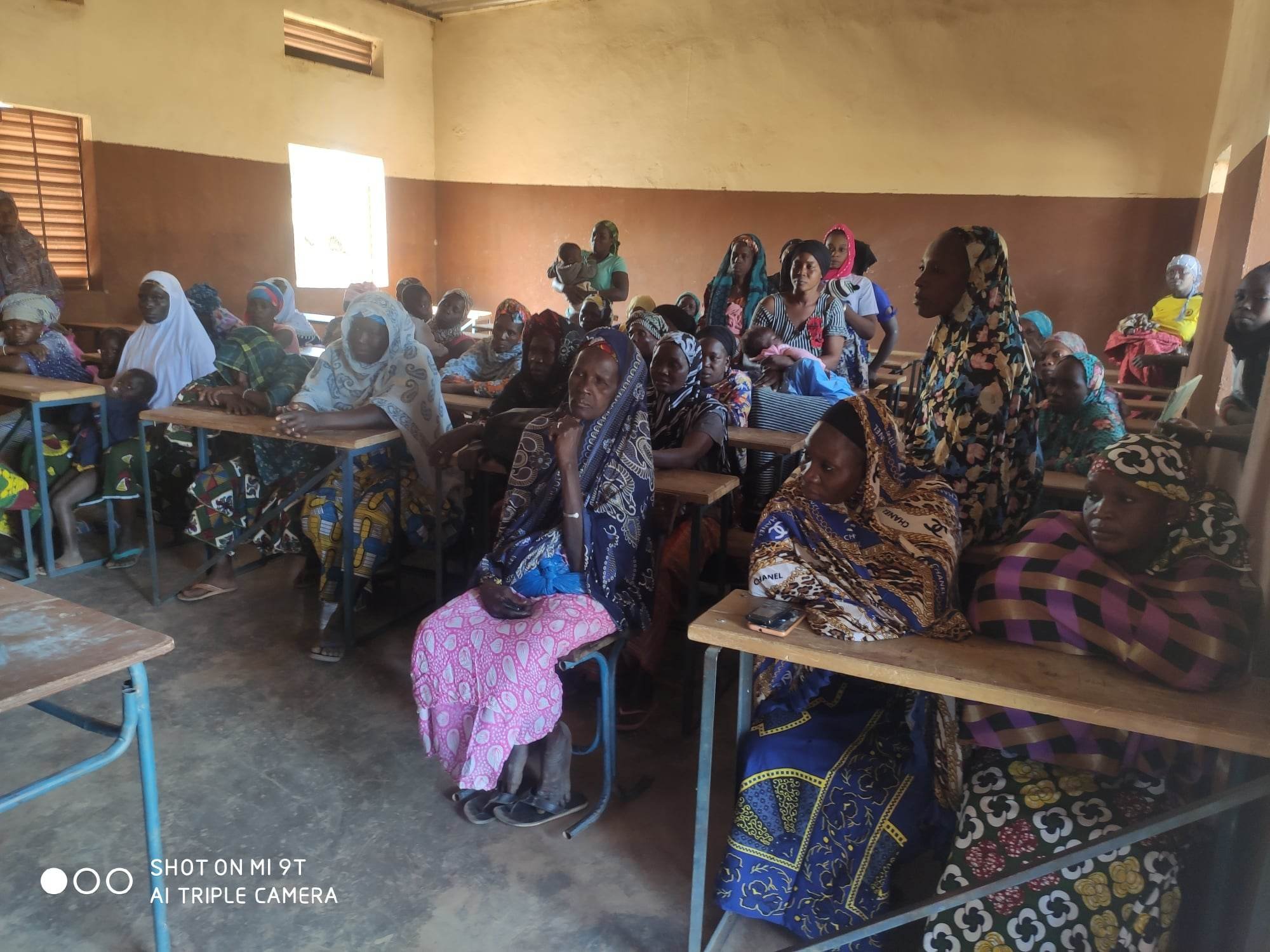
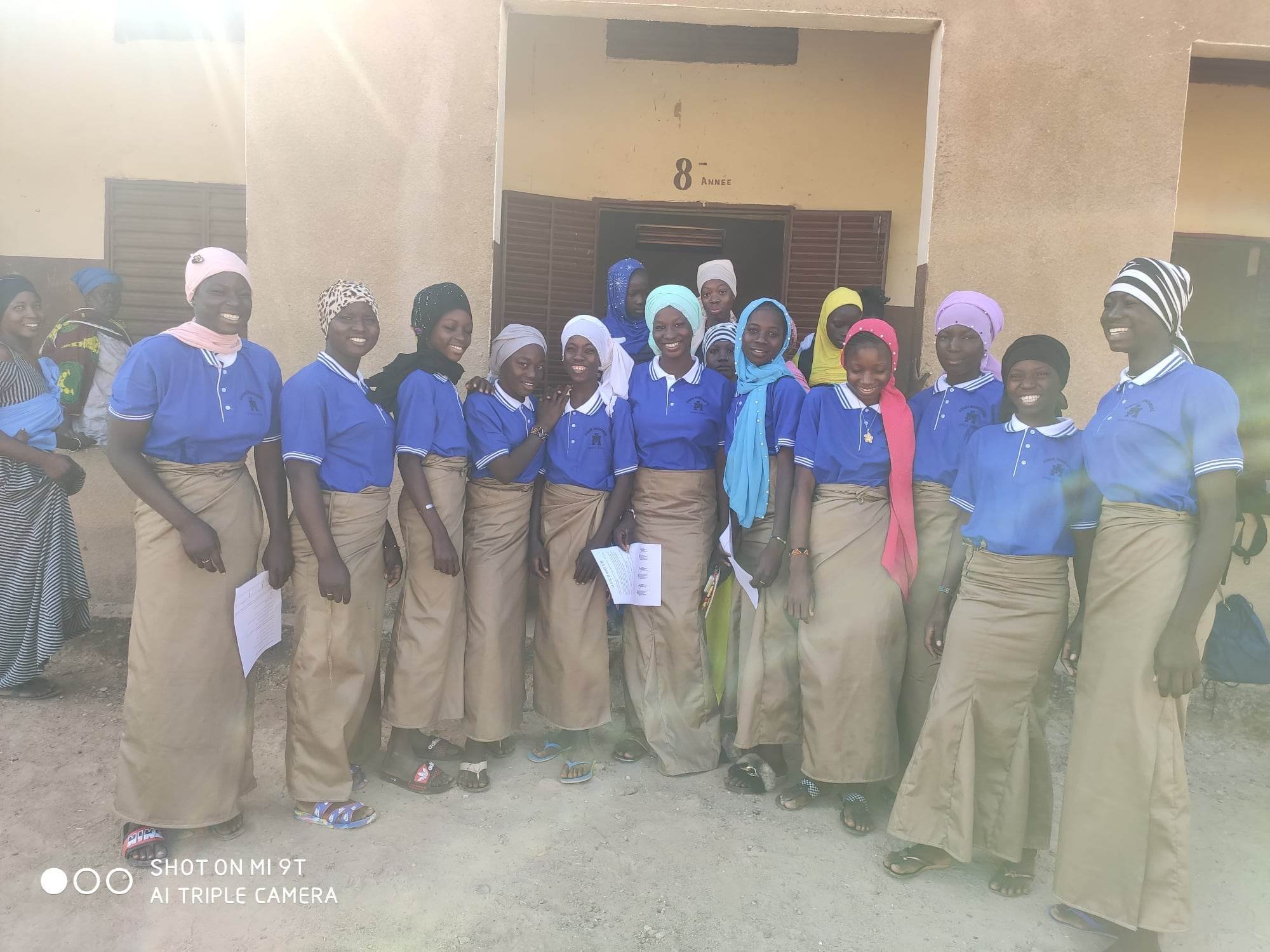
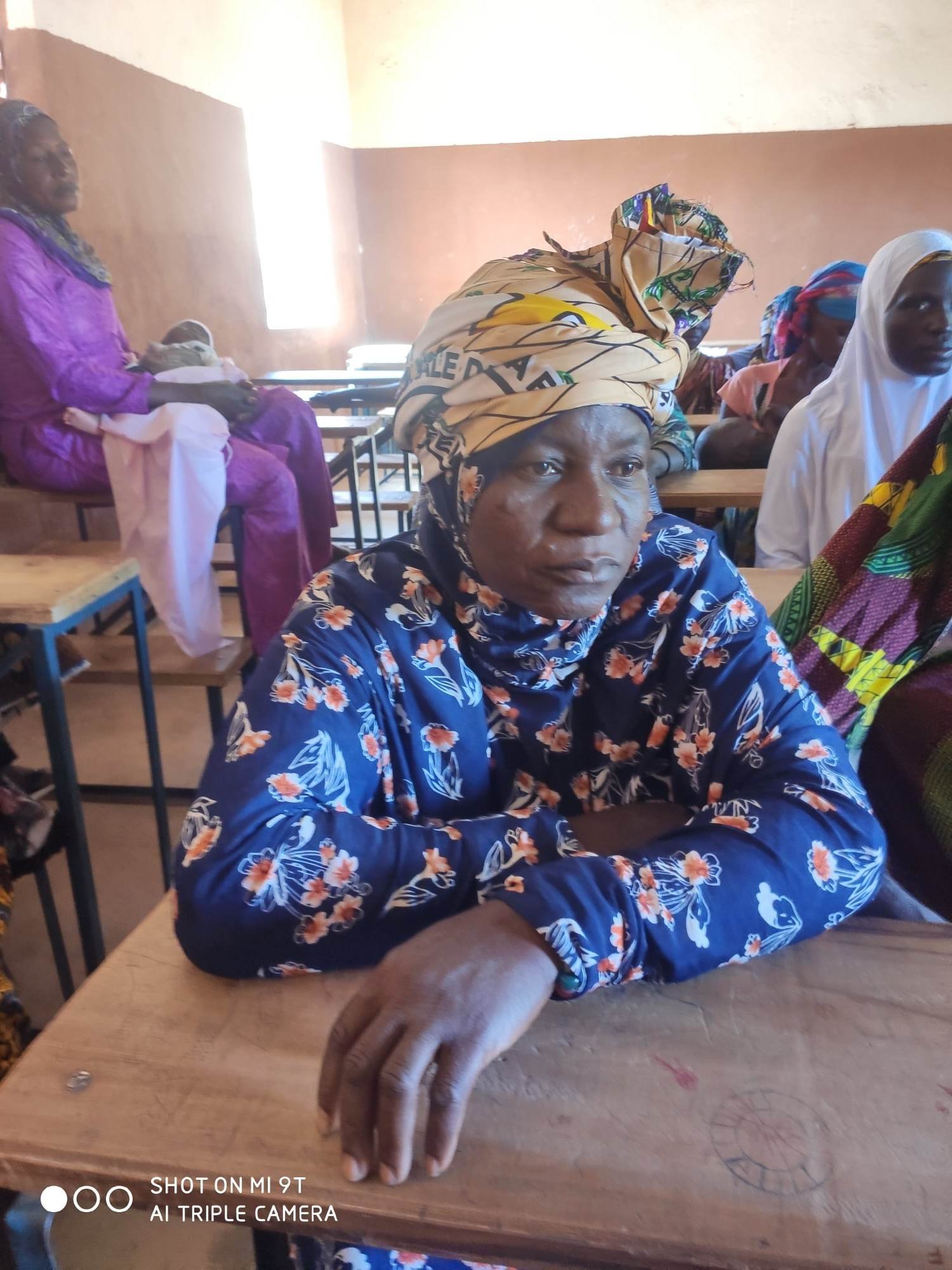
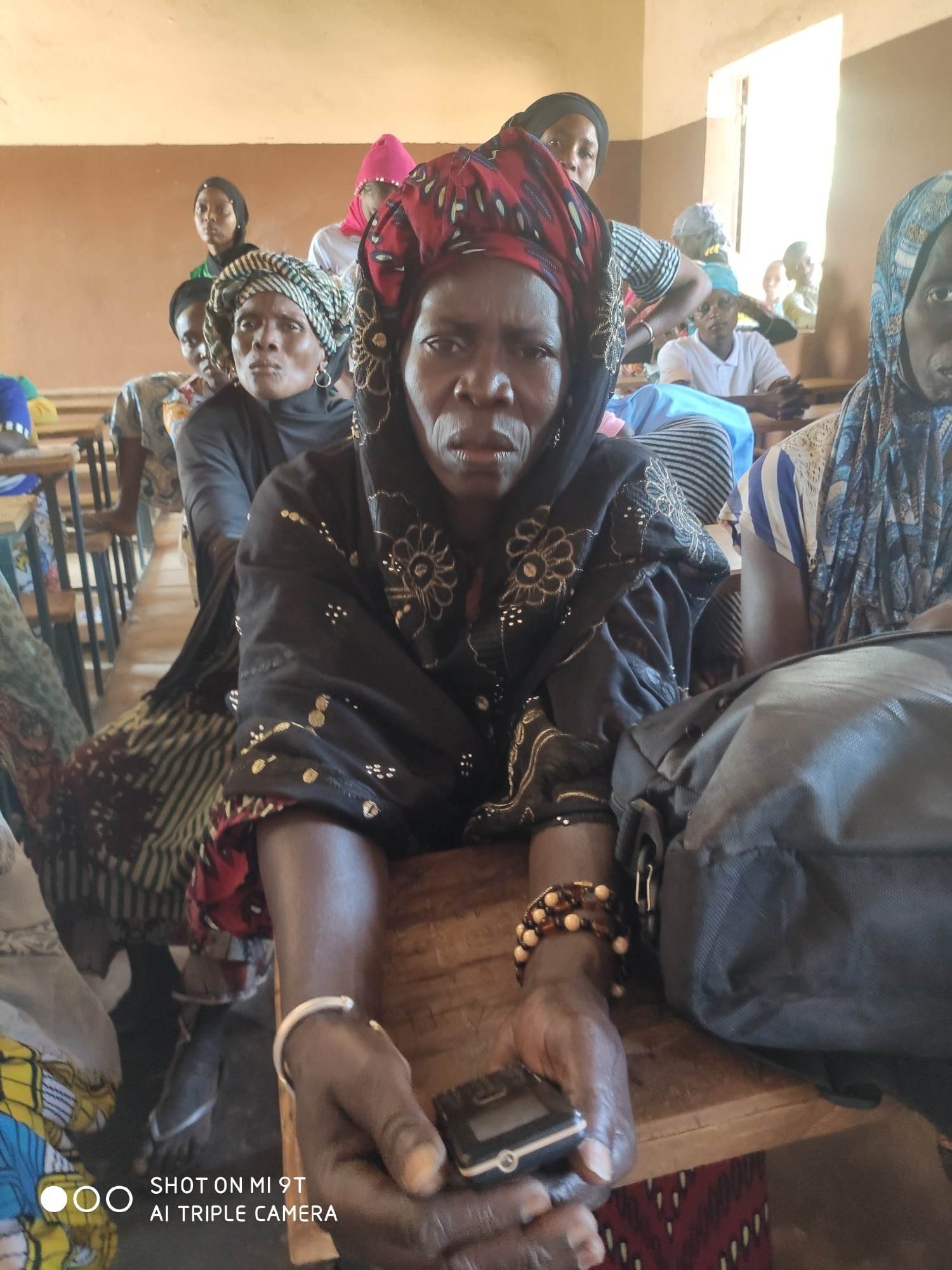
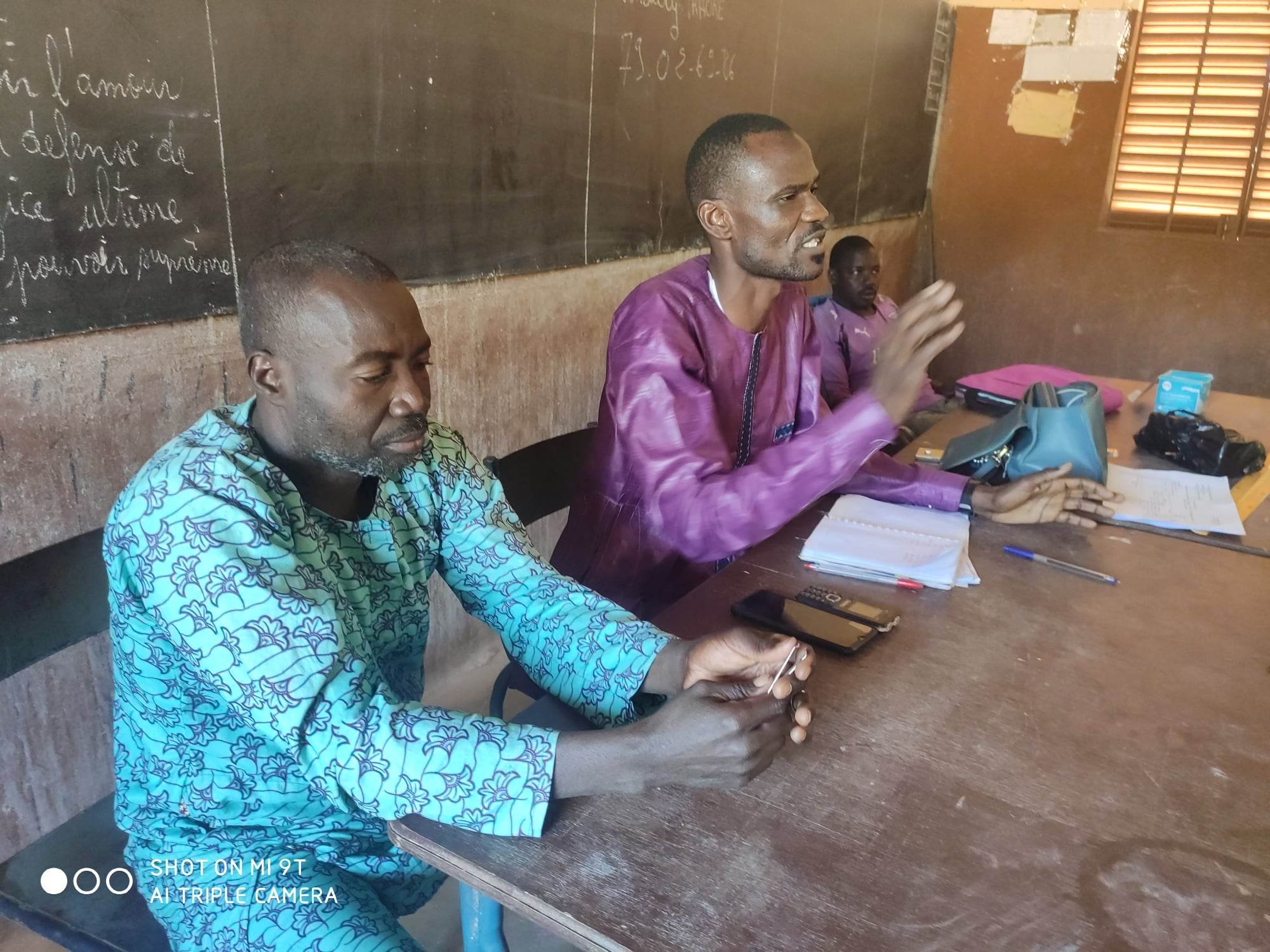
Mr. Diarra explains: “We will raise parents’ awareness of the need to reduce girls’ workload so that they have time to devote themselves to their studies. This is important for their academic success.”
Mah Coulibaly is a housewife in Sankama. She lives with her husband and children. They have two daughters at school. She says: “We don’t have enough resources. My daughters sell my wares. They also help me with other activities. I am aware that this affects their studies. But, I have no one else to help me. I would try to do everything possible to give them time to learn the lessons.”
I drew inspiration from my own story to raise awareness of how girls have more time for their studies when they don't need to spend too much time on household chores. I explained that I help the girls today because I was able to focus on my studies. We concluded our meeting with a short quote “When girls fail, the whole your community has failed, because it is your duty to ensure a better future for them.”
A Village Steps Up for Their Girls
Now that the school year is well underway in Mali, I have been checking in with mothers involved in our Girls’ Project Mothers Loan Funds. These funds use revolving credit to help mothers establish small businesses, and the interest is used to pay girls’ school fees. While visiting with the mothers in Tamala, they told me the story of Sitan Samake as an example of the huge changes the Girls’ Project has created in their village.


